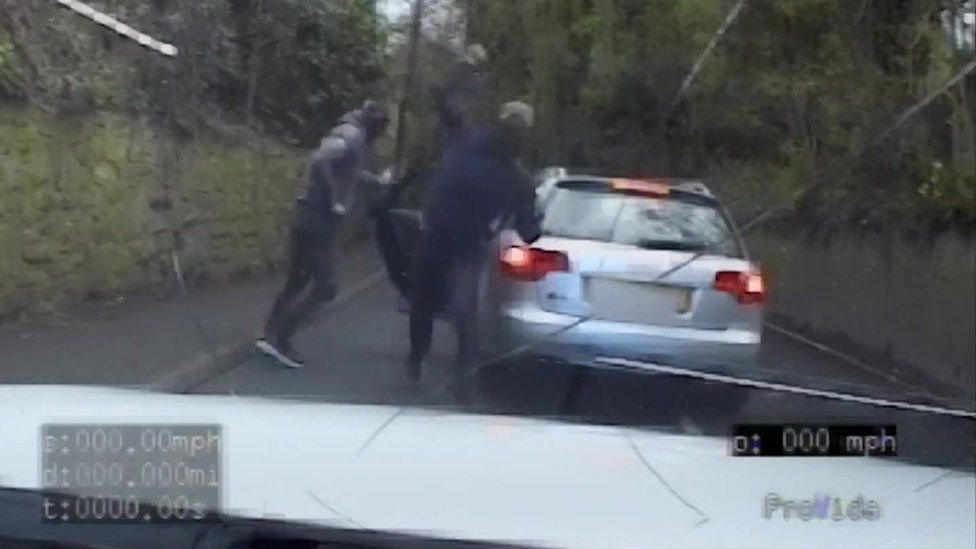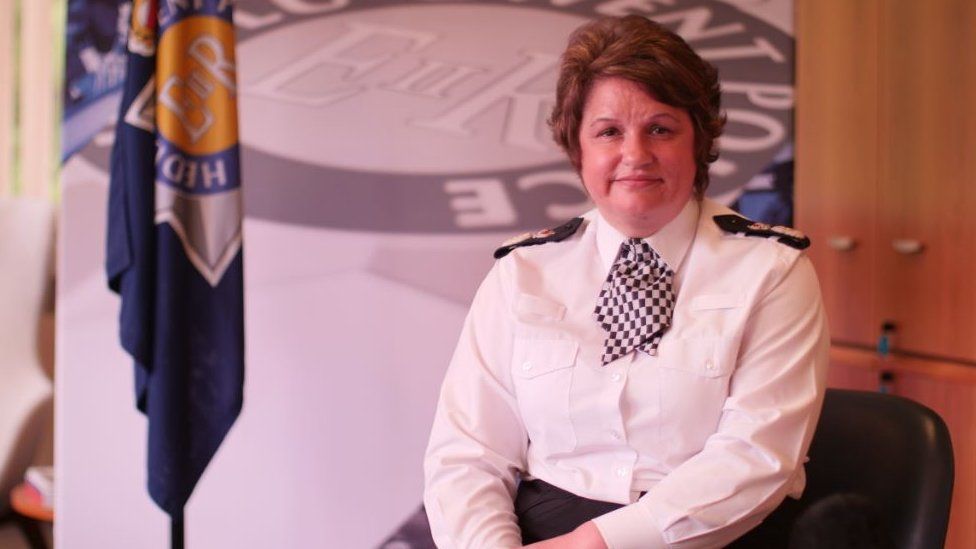Attacks on 999 workers unacceptable, Gwent Police chief says

A police chief has called for stiffer sentences for assaults on emergency service workers, saying penalties often “don’t go far enough”.
New figures show attacks including biting and spitting were, on average, 10% higher a month during the pandemic.
Gwent Police Chief Constable Pam Kelly’s spoke out at the launch of a campaign by Wales’ emergency services, condemning abuse suffered by staff.
The Home Office said it was doubling maximum sentences for such attacks.
“We need to look at these offences and society needs to say they’re not acceptable,” said Ms Kelly.
“That needs to be reflected in stiffer penalties and stiffer sentences.”
With pubs in Wales set to reopen indoors on Monday, there is concern those figures could continue to rise.
Overall crime recorded by police in England and Wales fell by 8% in 2020 as periods of lockdown caused theft reports to drop by more than a quarter, the Office for National Statistics (ONS) said.
However figures from the emergency services show a peak in assaults occurred while lockdown restrictions were being eased last summer – with 256 cases recorded in July and 253 in August.
Most assaults were on police officers, with a third resulting in injury.
The data also shows there were more than 600 instances of ambulance staff being attacked between April 2019 and November 2020.
But proportionately fewer assaults on ambulance staff resulted in some form of criminal proceedings.
The Assaults on Emergency Workers (Offences) Act was introduced in 2018, giving courts more severe sentencing powers when emergency service workers have been attacked.
The act doubled the maximum term from six months to 12 in England and Wales.
In 2020, a consultation was launched to consider doubling the maximum sentence again.
Chief Constable of South Wales Police Jeremy Vaughan has warned officers to prepare for a busy few months as nightlife resumed.
He called for people to take personal responsibility when lockdown eased and “not to get in a position where they get so drunk that they are not capable of deciding what they do”.
‘Penalties don’t often go far enough’

Ms Kelly said: “My concern is that sometimes the sentences are not what they ought to be and, therefore, our staff are not reporting assaults against themselves because they don’t feel like people are listening to them.
“I think we really need to look at sentences and penalties for those people who commit those types of offences.
“It’s not right that people who wear the uniform here in Wales are not having justice themselves. The penalties don’t often go far enough.
“We need to make sure that when an emergency service worker is assaulted that justice is delivered for them.”
The Welsh Ambulance Service said it was concerned about the “severe long-term impact” of the abuse, with some victims unable to return to work for months.
“The impact for the individual is that they can be off work for a period of time, that then has a knock-on effect on the service,” said Dylan Parry, project officer for violence and aggression at the service.
“It’s been a very, very difficult year-and-a-half. Extremely tough circumstances for our staff to work in.
“It’s tough enough on a daily basis without all the extras to go with it.”
The emergency services have launched a year-long campaign encouraging the public to “work with us, not against us”.
It will focus on key dates coinciding with a spike in assaults – for example large sporting events, bank holidays and Bonfire Night.
Source: (BBC News)

